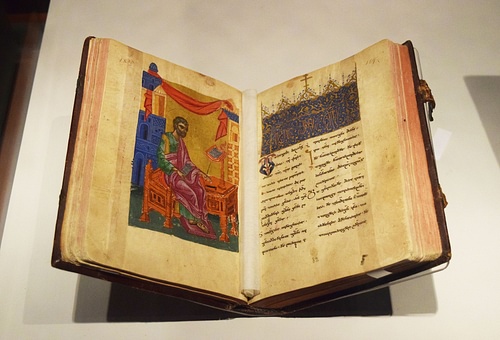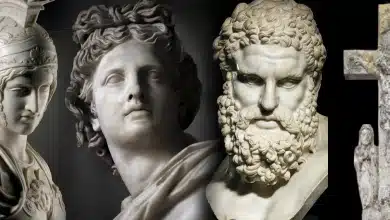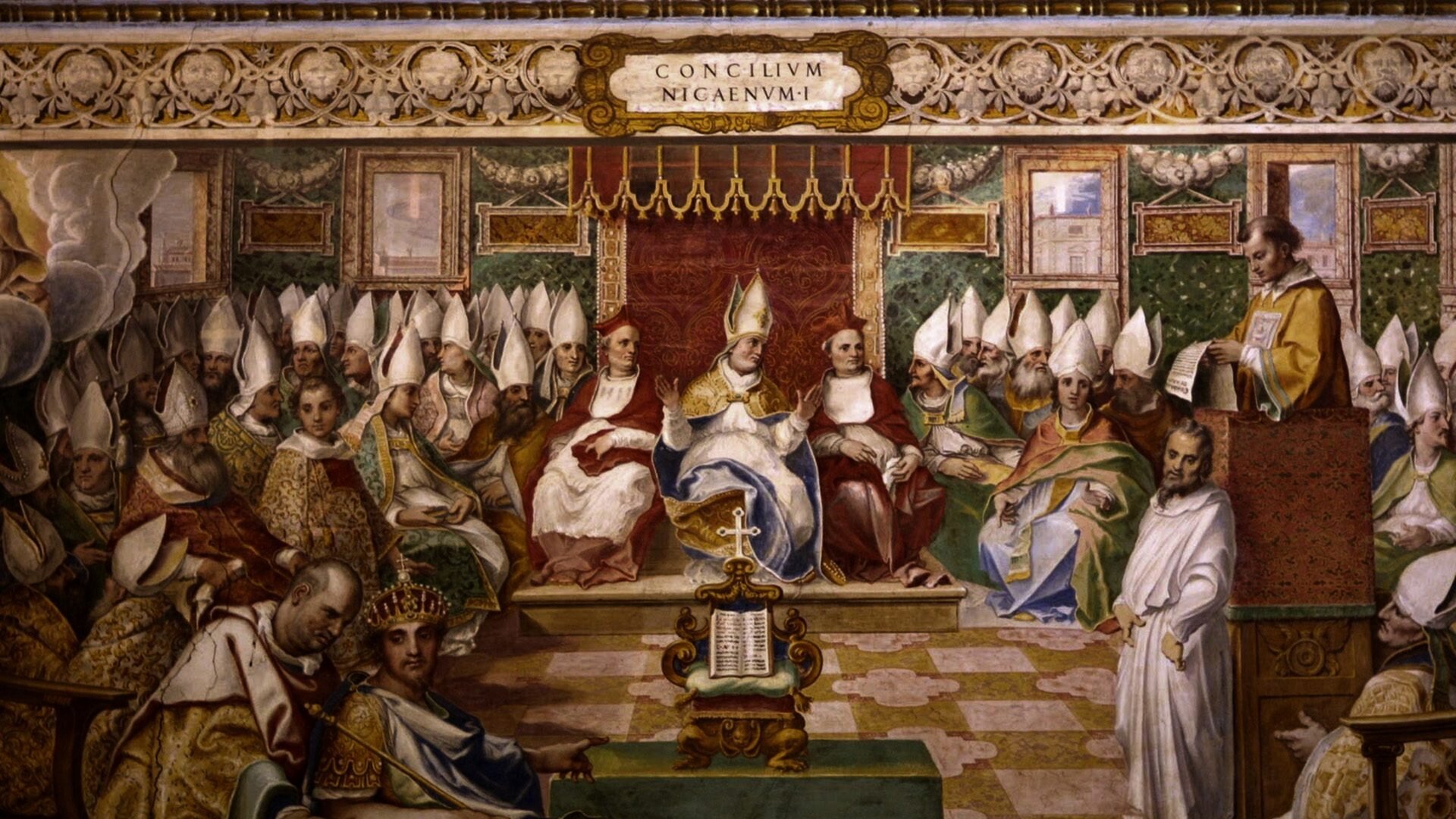Paul of Tarsus, the false apostle at the origin of Christianity

No study of ancient Christianity is complete without examining the life of Paul of Tarsus. Michael Hart ranks him sixth in “The 100 Most Influential People in History,” while Thomas Jefferson, the third president of the United States, referred to him as “the first corrupter of the doctrines of Jesus.” Analyzing Paul’s life is a complex task.
Born in Tarsus as Saul (or Saint Paul), he is viewed as a brilliant thinker who liberated Christianity from the constraints of Judaism, but he is also seen as someone who distorted the original teachings of Jesus. Additionally, he is often described as the one who Hellenized and betrayed those teachings.
Paul: The True Founder of Christianity

James D. Tabor is Chairman of the Department of Religious Studies at the University of North Carolina at Charlotte, where he has taught since 1989.
In his book “Paul and Jesus: How the Apostle Transformed Christianity,” he describes how the apostle Paul of Tarsus completely transformed the faith of Jesus into what is known today as Christianity. In the introduction to his book, he states:
As we shall see, such an understanding of the Christian faith, confessed by millions each week in church services all over the world, originates from the experiences and ideas of one man—Saul of Tarsus, better known as the apostle Paul—not from Jesus himself, or from Peter, John, or James, or any of the original apostles that Jesus chose in his lifetime. And further, I maintain that there was a version of “Christianity before Paul,” affirmed by both Jesus and his original followers, with tenets and affirmations quite opposite to these of Paul.
This is the lost and forgotten Christianity of James the brother of Jesus, leader of the movement following Jesus’ death, and the Christianity of Peter and all the apostles. In other words, the message of Paul, which created Christianity as we know it, and the message of the historical Jesus and his earliest followers, were not the same. In fact, they were sharply opposed to one another with little in common beyond the name Jesus itself. Discovering how such a state of affairs came about has been the quest, as well as the adventure, of my life.
Paul and Jesus: How the Apostle Transformed Christianity by James D. Tabor
This is not an extreme opinion of James Tabor’s own but one shared by several New Testament scholars. Gerd Lüdemann is a German academic and historian of the New Testament He has taught this subject since 1983 at the Faculty of Theology at the University of Göttingen. He wrote a book entitled ” Paul the Founder of Christianity ” where he explains that Paul not only greatly influenced Christianity, but that he is the founder of Christianity as we know it today.
This same vision of Paul can be found among older specialists, such as Ferdinand Christian Baur(1792-1860), founder and leader of the (new) Tübingen school of theology, Baur argued that second-century Christianity represented the synthesis of two opposing theses: Jewish Christianity (Petrine Christianity) and pagan Christianity (Pauline Christianity). Jeremy Bentham(1748,1832), who wrote his book ” Not Paul But Jesus,” argues that Paul’s works contradicted Christ’s teachings. This debate has continued ever since, with Adolf Deissmann (1866-1937) and Richard Reitzenstein (1861-1931) emphasizing Paul’s Greek heritage and Albert Schweitzer stressing his dependence on Judaism.
Paul’s literary victory in the New Testament
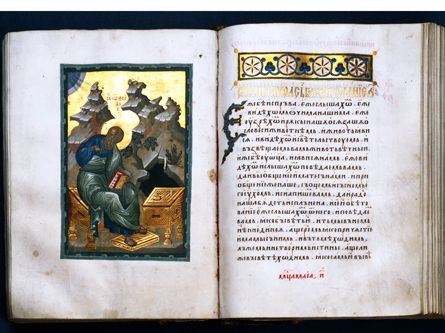
The fact that Paul won the battle against the apostles of Jesus and the Judeo-Nazarenes is evident in the New Testament recognized by the Pauline church; James tabor states that “Paul’s triumph is almost wholly a literary victory, reinforced by an emerging theological orthodoxy backed by Roman political power after the time of the emperor Constantine (A.D. 306– 37).“[Paul and Jesus: James D. Tabor], the New Testament is a pro-Paul writing written half by Paul :
Although St. Paul was not one of the original 12 Apostles of Jesus, he was one of the most prolific contributors to the New Testament. Of the 27 books in the New Testament, 13 or 14 are traditionally attributed to Paul, though only 7 of these Pauline epistles are accepted as being entirely authentic and dictated by St. Paul himself. The authorship of the others is debated, and they are commonly thought to have come from contemporary or later followers writing in Paul’s name.
Encyclopedia Britannica St. Paul’s Contributions to the New Testament
Now, a simplistic reading of the New Testament will lead you to say that the Gospels describe the life of Jesus, and then there are Paul’s writings, but this reading is contrary to historical data:
We should remember that the New Testament, as we have it, is much more dominated by Paul than appears at first sight. As we read it, we come across the Four Gospels, of which Jesus is the hero, and do not encounter Paul as a character until we embark on the post-Jesus narrative of Acts. Then we finally come into contact with Paul himself, in his letters. But this impression is misleading, for the earliest writings in the New Testament are actually Paul’s letters, which were written about ad 50-60, while the Gospels were not written until the period ad 70-1 10. This means that the theories of Paul were already before the writers of the Gospels and coloured their interpretations of Jesus’ activities. Paul is, in a sense, present from the very first word of the New Testament
The Mythmaker: Paul and the Invention of Christianity Hyam Maccoby
Although Paul wrote many New Testament letters, most scholars who have studied them have concluded that only seven letters were written by Paul when he lived in the early 1st century, between 20 and 30 years after Jesus’ departure. Where did the other letters come from? Others wrote them in Paul’s name at the end of the 1st and beginning of the 2nd centuries. Paul’s seven authentic or “undisputed” letters, in approximate chronological order, are as follows:
- 1 Thessalonians
- Galatians
- 1 Corinthians
- 2 Corinthians
- Philemon
- Philippians
- Romans
Who is Paul
Tarse
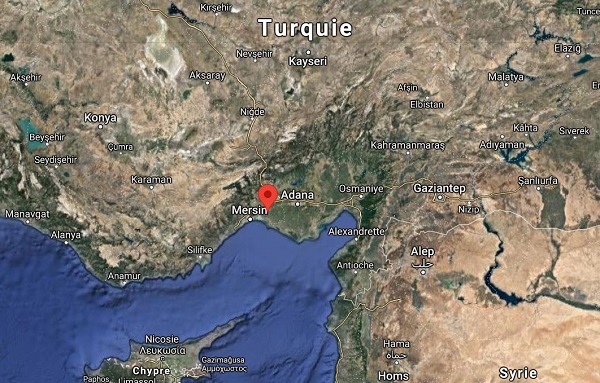
Paul was born in Tarsus, now in Turkey, the capital of the Roman province of Cilicia. While his exact birth date is unknown, it is generally estimated to be between 2 and 10 AD. In Acts 7:58, he is described as a young man during Stephen’s martyrdom.
It can be assumed that his father was a weaver or tent-maker, which he would likely become as well. His family was probably relatively well-to-do, having been granted Roman citizenship. They were part of the Diaspora, a significant aspect of Jewish life during that time.
Formation
While still relatively young, he was sent to Jerusalem to receive his education at the Gamaliel school, one of history’s most renowned teachers of Jewish law.
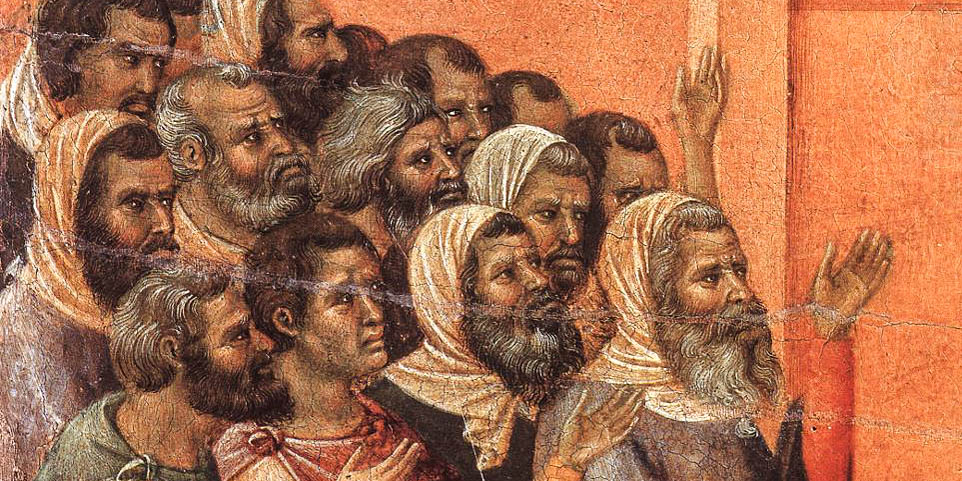
Although we know from his biography and the Acts that Paul could speak Hebrew, modern scholars suggest that Koine Greek was his native language. In his letters, Paul was heavily influenced by his knowledge of Stoic philosophy, using Stoic terms and metaphors to aid his new pagan converts in understanding the Gospel and explaining his Christology.
Persécuteur des premiers croyants
He assists the High Priest during the persecution of Hellenistic Christians in Jerusalem. These Hellenists were diaspora Jews who spoke Greek, unlike the Hebrews, Palestinian Christians, who spoke Aramaic. Another argument to support this thesis: during the persecution, the Christians of Jerusalem left the city, but not the apostles (Acts 8:1). This text suggests that it is the Hellenistic Christians who left the city, with the term apostles referring to the Hebrew section associated with the apostles. Furthermore, it is the Hellenistic Jews who will be the pioneers of evangelization.
In his letter to the Galatians, he states:
For you have heard of my former conduct in Judaism, how I persecuted the church of God beyond measure and tried to destroy it. And I advanced in Judaism beyond many of my contemporaries in my own nation, being more exceedingly zealous for the traditions of my fathers.
Gal 1:13-14
Was Paul a true Pharisee?
Despite Paul’s claim to be a “Pharisee son of a Pharisee,” some believe that he appropriated this title to get the most out of it in his preaching; in his book “The Myth Maker: Paul and the Invention of Christianity,” Hyam Maccoby states:
Paul was never a Pharisee rabbi, but was an adventurer of undistinguished background. He was attached to the Sadducees, as a police officer under the authority of the High Priest, before his conversion to belief in Jesus. His mastery of the kind of learning associated with the Pharisees was not great. He deliberately mis- represented his own biography in order to increase the effectiveness of his missionary activities.
The Mythmaker: Paul and the Invention of Christianity Hyam Maccoby
Epiphanius of Salamis reports that the early Ebonite Christians believed that Paul was a Greek and that his maneuvering into Christianity was merely the result of a broken heart:
«They [the Ebionites] declare that he was a Greek . .. He went up to Jerusalem, they say, and when he had spent some time there, he was seized with a passion to marry the daughter of the High Priest. For this reason he became a proselyte and was circumcised. Then, when he failed to get the girl, he flew into a rage and wrote against circumcision and against the Sabbath and the Torah’
Epiphanius of Salamis, Panarion 30.16.6-9
Paul’s conversion
Paul’s conversion story
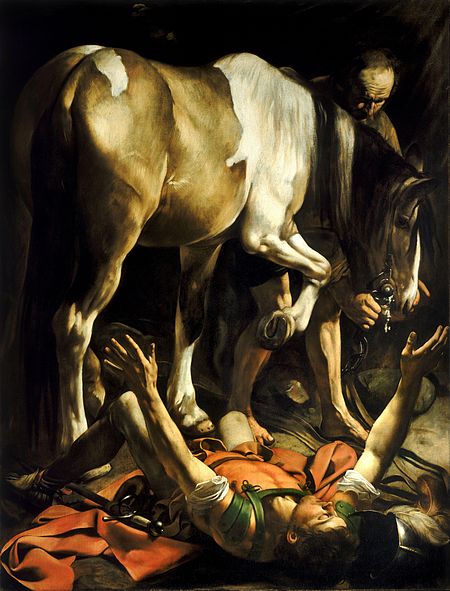
This is one of three accounts of Paul’s conversion found in the book of Acts, where Paul recounts his conversion story to King Agrippa.
“While thus occupied, as I journeyed to Damascus with authority and commission from the chief priests, at midday, O king, along the road I saw a light from heaven, brighter than the sun, shining around me and those who journeyed with me. And when we all had fallen to the ground, I heard a voice speaking to me and saying in the Hebrew language, ‘Saul, Saul, why are you persecuting Me? It is hard for you to kick against the goads.’
So I said, ‘Who are You, Lord?’ And He said, ‘I am Jesus, whom you are persecuting. But rise and stand on your feet; for I have appeared to you for this purpose, to make you a minister and a witness both of the things which you have seen and of the things which I will yet reveal to you. I will deliver you from the Jewish people, as well as from the Gentiles, to whom I now send you, to open their eyes, in order to turn them from darkness to light, and from the power of Satan to God, that they may receive forgiveness of sins and an inheritance among those who are sanctified by faith in Me.’
Acts 26:12-17
One story, three versions!

Three accounts of Paul’s conversion are in the book of Acts (Acts 9; 22:4-21; 26:9-18). These accounts contain some noticeable contradictions that raise doubts about their authenticity, especially considering that they are all written by the same author of Acts.
- When Paul saw the light, he fell to the ground. Did his companions also fall to the ground? Yes (Acts 26:14) No (Acts 9:7)
- When Paul was on the road to Damascus, he saw a light and heard a voice. Did those who were with him hear the voice? Yes (Acts9:7) No (Acts22:9)
- Did those with him see anything? No (Acts9:7)Yes they saw light(Acts22:9)
- Did the voice define what Paul’s duties were to be? Yes (Acts 26:16-18) No. The voice commanded Paul to enter the city of Damascus, where he would be told what he was to do. (Acts9:7;22:10)
Did Luke create this conversion story?

The authenticity of the story is closely linked to the authenticity of the book of acts that contains it:
“We know better today that Luke, in both his first and second books [of Acts], was first and foremost a theologian of the Son of God and his Church, and that his relationship with “historical facts” was not as naïve as we once thought.
Michel Trimaille, “Que sait-on de Paul aujourd’hui?”, in Pierre Geoltrain, Aux origines du christianisme, Gallimard / Le Monde de la Bible, 2000, p. 309.
Paul’s epistles do not account for a conversion story on the road to Damascus. While Paul does claim to have “seen the Lord,” he does not provide the details of the story that Luke narrates in the Acts of the Apostles. This has led some scholars to believe that Luke may have invented this story, possibly drawing inspiration from works like the Bacchae.
In Acts 26:14, it is stated that Paul hears the voice of Jesus saying: “And when we all had fallen to the ground, I heard a voice speaking to me and saying in the Hebrew language, ‘Saul, Saul, why are you persecuting Me? It is hard for you to kick against the goads.’ ” [pros kentra laktizein].
In her book “Putting Away Childish Things,” pages 163-9, Uta Ranke-Heinemann asserts that there is a parallel between the Bacchae (a play by the Bacchae), which dates back approximately five hundred years before Acts, Acts 24:16, which says, “it is hard for you to kick against the goads” (πρός κέντρα λακτίζειν) evokes Bacchae 795, which refers to “a kick against the goads” (πρός κέντρα λακτίζοιµι). In both texts, the phrase appears in the context of theomachy, as Paul fights Christ and Pentheus fights Dionysus
These two texts feature remarkably similar wording, yet the Acts mentions that Jesus quoted a Greek proverb to Paul while speaking Aramaic (“in Hebrew”).
Paul, the self-proclaimed apostle
The alleged revelation

The account of Paul’s conversion may lack historical reliability; however, one thing is clear: Paul claimed to have been directly contacted by Jesus and asserted that he received his gospel directly from Him. In other words, we are presented with an individual who professes to have received a divine message.
But I make known to you, brethren, that the gospel which was preached by me is not according to man. For I neither received it from man, nor was I taught it, but it came through the revelation of Jesus Christ.
Galatians 1:11-12
This new “prophet” immediately begins to spread his message, separate from those who truly knew Jesus. Paul claims that after his conversion, he preached for three years without meeting any of Jesus’ apostles. The Book of Acts does not entirely contradict this claim, stating that Paul went straight to Damascus.
However, it fails to mention the three-year gap between his conversion and his first visit to Jerusalem, which creates the impression that he went to Jerusalem shortly after his conversion (Acts 9:8, Acts 9:26).
When he finally leaves for Jerusalem, his stay lasts only two weeks; he meets only Peter and James, Jesus’s brother, and not the other apostles.
to reveal His Son in me, that I might preach Him among the Gentiles, I did not immediately confer with flesh and blood, nor did I go up to Jerusalem to those who were apostles before me; but I went to Arabia, and returned again to Damascus.
Then after three years I went up to Jerusalem to see [c]Peter, and remained with him fifteen days. But I saw none of the other apostles except James, the Lord’s brother. (Now concerning the things which I write to you, indeed, before God, I do not lie.)
Galatians 1:16-20
The independent preaching
The fact that he could start preaching far from the apostles of Jesus under the pretext that he received a revelation is inconceivable, and the apostles of Jesus certainly thought the same thing. Furthermore, one reads in the pseudo-Clementines, one of the ancient Christian texts not recognized by the church, written by the Apostle Peter, addressing the one who claims to be able to preach following a special “revelation”:
But he who trusts to apparition or vision and dream is insecure. For he does not know to whom he is trusting. For it is possible either that he may be an evil demon or a deceptive spirit, pretending in his speeches to be what he is not.…
If, then, our Jesus appeared to you in a vision, made Himself known to you, and spoke to you, it was as one who is enraged with an adversary; and this is the reason why it was through visions and dreams, or through revelations that were from without, that He spoke to you. But can any one be rendered fit for instruction through apparitions? And if you will say, ‘It is possible,’ then I ask, ‘Why did our teacher abide and discourse a whole year to those who were awake?’ And how are we to believe your word, when you tell us that He appeared to you? And how did He appear to you, when you entertain opinions contrary to His teaching? But if you were seen and taught by Him, and became His apostle for a single hour, proclaim His utterances, interpret His sayings, love His apostles, contend not with me who companied with Him. For in direct opposition to me, who am a firm rock, the foundation of the Church, you now stand
homily 17
According to this writing, Peter, not Paul, is the proper authority for interpreting Jesus’ message. Paul corrupted the true faith based on a brief vision he undoubtedly misinterpreted. Therefore, Paul is the enemy of the apostles, not their leader. He is outside the true faith; he is a heretic to be banished, not an apostle to be followed.
The teachings of Paul
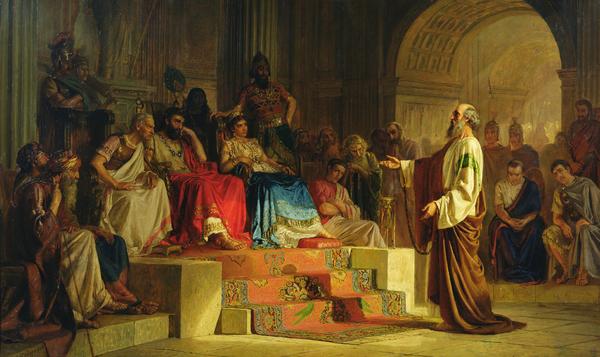
In all the vicissitudes that follow, it must be emphasised that Paul is, in effect, the first “Christian” heretic, and that his teachings – which become the foundation of later Christianity – are a flagrant deviation from the “original” or “pure” form extolled by the leadership.
… Eisenman has demonstrated that James emerges as the custodian of the original body of teachings, the exponent of doctrinal purity and rigorous adherence to the Law. The last thing he would have had in mind was founding a “new religion” Paul is doing precisely that.
… In the conflict between James and Paul, the emergence and evolution of what we call Christianity stood at a crossroads. Had the mainstream of its development conformed to James’s teachings, there would have been no Christianity at all, only a particular species of Judaism which might or might not have emerged as dominant. As things transpired, however, the mainstream of the new movement gradually coalesced, during the next three centuries, around Paul and his teachings. Thus, to the undoubted posthumous horror of James
Michael and Richard Leigh. 1993. The Dead Sea Scrolls Deception. Simon & Schuster. pp. 181–187
The teachings of Paul vs. those of Jesus

What would Jesus’s reaction be if he were to know what Paul did after him? Jesus would undoubtedly have been outraged by the doctrines the false apostle introduced into his message. The historian Joel Carmichel reports these facts:
We are a universe away from Jesus. If Jesus came “only to fulfill” the Law and the Prophets; If he thought that “not an iota, not a dot” would “pass from the Law,” that the cardinal commandment was “Hear, O Israel, the Lord Our God, the Lord is one,” and that “no one was good but God”….What would he have thought of Paul’s handiwork! Paul’s triumph meant the final obliteration of the historic Jesus; he comes to us embalmed in Christianity like a fly in amber
Carmichael, Joel, M.A. 1962. The Death of Jesus. New York: The Macmillan Company. p. 270.
Jesus Commands to Observe the Law:
“Do not think that I came to destroy the Law or the Prophets. I did not come to destroy but to fulfill. For assuredly, I say to you, till heaven and earth pass away, one jot or one tittle will by no means pass from the law till all is fulfilled. Whoever therefore breaks one of the least of these commandments, and teaches men so, shall be called least in the kingdom of heaven; but whoever does and teaches them, he shall be called great in the kingdom of heaven”
Matthiew 5.17
But Paul rejects the law.
Therefore the law was our tutor to bring us to Christ, that we might be justified by faith. But after faith has come, we are no longer under a tutor.
Galatians 3:25-25
Jesus said that salvation comes through the law.
“Now behold, one came and said to Him, “GoodTeacher, what good thing shall I do that I may have eternal life?”So He said to him, “Why do you call Me good? No one is good but One, that is, God. But if you want to enter into life, keep the commandments.” He said to Him, “Which ones?” Jesus said, “‘You shall not murder,’ ‘You shall not commit adultery,’ ‘You shall not steal,’ ‘You shall not bear false witness,’ ‘Honor your father and your mother,’ and, ‘You shall love your neighbor as yourself.”
Matthew 19.16
Now behold, one came and said to Him, “Good Teacher, what good thing shall I do that I may have eternal life?” So He said to him, “Why do you call Me good? No one is good but One, that is, God. But if you want to enter into life, keep the commandments.” He said to Him, “Which ones?”
Jesus said, “‘You shall not murder,’ ‘You shall not commit adultery,’ ‘You shall not steal,’ ‘You shall not bear false witness,’ ‘Honor your father and your mother,’ and, ‘You shall love your neighbor as yourself.’ ” The young man said to Him, “All these things I have kept [g]from my youth. What do I still lack?”
Mattew 19.16-20
Paul says that no one is justified by the law.
But that no one is justified by the law in the sight of God is evident, for “the just shall live by faith.”
Galatians 3.11
Jesus observes the Sabbath
For the Son of Man is Lord even of the Sabbath.”
Matthew 12-8
Of how much more value then is a man than a sheep? Therefore it is lawful to do good on the Sabbath.
Matthew 12.12
But Paul deliberately rejects the Sabbath and says it is angels’ worship.
So let no one judge you in food or in drink, or regarding a festival or a new moon or sabbaths, which are a shadow of things to come, but the substance is of Christ. Let no one cheat you of your reward, taking delight in false humility and worship of angels, intruding into those things which he has [l]not seen, vainly puffed up by his fleshly mind
Colossians 2.16,18
Jesus says that the law does not fall.
And it is easier for heaven and earth to pass away than for one [g]tittle of the law to fail.
Luke 16.17
Therefore, whatever you want men to do to you, do also to them, for this is the Law and the Prophets.
Matthew 7.12
Paul considers cursed anyone who clings to the law.
For as many as are of the works of the law are under the curse; for it is written, “Cursed is everyone who does not continue in all things which are written in the book of the law, to do them.
Galatians 3.10
Jesus was circumcised.
And when eight days were completed [g]for the circumcision of the Child, His name was called Jesus, the name given by the angel before He was conceived in the womb.
Luke 2.21
Paul rejects circumcision.
Indeed I, Paul, say to you that if you become circumcised, Christ will profit you nothing.
Galatians 5.2
Paul was accustomed to saying Lord Jesus Christ and stated that faith is sufficient for justification:
“Our Lord Jesus Christ” see all his letters
And Jesus asserts that this is not the way to enter the kingdom of heaven:
“Not everyone who says to Me, ‘Lord, Lord,’ shall enter the kingdom of heaven, but he who does the will of My Father in heaven
Mattew 7.21
Paul preached in the name of Jesus.
In the name of our Lord Jesus Christ, when you are gathered together, along with my spirit, with the power of our Lord Jesus Christ,
1 Corinthians 5.4
And Jesus said that many will preach in his name, but he will deny them on the day of resurrection:
Beware of false prophets, who come to you in sheep’s clothing, but inwardly they are ravenous wolves.
Matthew 7.15
Many will say to Me in that day, ‘Lord, Lord, have we not prophesied in Your name, cast out demons in Your name, and done many wonders in Your name?’ And then I will declare to them, ‘I never knew you; depart from Me, you who practice lawlessness!’
Matthew 7.22-23
And behold, a certain [h]lawyer stood up and tested Him, saying, “Teacher, what shall I do to inherit eternal life?” He said to him, “What is written in the law? What is your reading of it?” So he answered and said, “ ‘You shall love the Lord your God with all your heart, with all your soul, with all your strength, and with all your mind,’ and ‘your neighbor as yourself.’ ” And He said to him, “You have answered rightly; do this and you will live.”
Luke 10.25-28
In his book “The Jesus Report” 1972, Johannes Lehmann summarizes:
A “large portion” of the New Testament? Of the 27 books and epistles, Paul wrote 14 – more than half. That’s a lot of literary leverage to raise his theology to the top. Regarding Paul’s perspective, “He doesn’t question what led to Jesus’ death, he just sees what it means to him personally. He transforms a man who called people to reconciliation with God, into a savior. He transforms an orthodox Jewish movement into a universal religion that ultimately clashed with Judaism.”
4 Lehmann, Johannes. 1972. The Jesus Report p. 137.
And yet, Paul has only just begun heresy.
Although Paul may have laid the foundation of Christianity, the patriarchs, monks, and priests have built many stories upon that foundation over the years—stories that neither Paul nor Jesus Christ ever intended to create!
In studying Paul’s letters, I realized that Paul did not mention Christians’ statements about Christ’s divinity and worship; he never dared to articulate them.
- Paul never said Jesus was God, but he always made him lord after God.
- He never said that Jesus and God are one.
- Paul of Tarsus never said that Jesus is of the same essence as God.
- He never uttered the Trinitarian phrase “father, son, holy spirit” or trinity.
- Paul never said that Jesus and God were equal, but he always defended that God was the Creator and that Jesus was sent by God.
- He never gave Mary any divinity or proclaimed her “mother of God.”
Paul and the Apostles of Jesus
If Paul invented all these innovations in Christianity and changed the teachings of Christ, did the apostles of Jesus allow him to do so? We will examine Paul’s relationship with the apostles and the early believers in Jesus, first through Paul’s own writings and then through the opinions of the early Christians found in the testimonies of the Church Fathers or in the apocryphal writings.

to the Early Christian Writings and perhaps the most knowledgeable contemporary voice on the subject, reminds us that:
“Paul’s point of view was not universally accepted, or one might say, was not even widely accepted,” and there were prominent Christian leaders, including Jesus’ closest disciple, Peter, “who vehemently contradicted him on this and considered Paul’s ideas to be a corruption of the true message of Christ.”Ehrman, Bart D. Lost Christianities. pp. 97–98
The relationship of Paul to the apostles through the writings of Paul
What was the relationship between Paul and the apostles of Jesus? The obvious place to start is with Paul himself. His earliest letters, written in the 50s AD, are the first Christian documents available to us. They are firsthand accounts. They serve as our witnesses to the state of affairs between Paul and the early apostles chosen by Jesus. For Paul, this separation and independence from both the “earthly” Jesus, as he refers to him, and the apostles was a point of pride and authenticity.
Paul’s relationship with the original apostles was sporadic and minimal. He is emphatic about this point, swearing with an oath to his followers that the gospel message he received directly from Christ came as a heavenly revelation and was not in any way derived from consulting with, or receiving authority from, the original Jerusalem apostles (Galatians 1: 16– 18).
Paul and Jesus: How the Apostle Transformed Christianity by James D. Tabor
In Paul’s writings, one can understand how irritated Paul was with some Israelite apostles who taught a gospel different from his own:
For if he who comes preaches another Jesus whom we have not preached, or if you receive a different spirit which you have not received, or a different gospel which you have not accepted—you may well put up with it!
For I consider that I am not at all inferior to the most eminent apostles. Even though I am untrained in speech, yet I am not in knowledge. But we have been thoroughly manifested among you in all things.
Did I commit sin in humbling myself that you might be exalted, because I preached the gospel of God to you free of charge?
….
Are they Hebrews? So am I. Are they Israelites? So am I. Are they the seed of Abraham? So am I. Are they ministers of Christ?—I speak as a fool—I am more: in labors more abundant, in stripes above measure, in prisons more frequently, in deaths often.
2 Corinthians 11 4-7 & 22-23
As mentioned earlier, Paul of Tarsus never received any teaching from the apostles of Jesus, he did not accompany them, and he only saw Peter and James for 15 days, and this was after 3 years of his baptism; he returned once more to Jerusalem to present to them what he was preaching far from them:
Then after fourteen years I went up again to Jerusalem with Barnabas, and also took Titus with me. And I went up by revelation, and communicated to them that gospel which I preach among the Gentiles, but privately to those who were of reputation, lest by any means I might run, or had run, in vain.
Galatians 2:1-2
So, what did the apostles say? Paul, who records their actions, says:
But on the contrary, when they saw that the gospel for the uncircumcised had been committed to me, as the gospel for the circumcised was to Peter (for He who worked effectively in Peter for the apostleship to the circumcised also worked effectively in me toward the Gentiles), and when James, Cephas, and John, who seemed to be pillars, perceived the grace that had been given to me, they gave me and Barnabas the right hand of fellowship, that we should go to the Gentiles and they to the circumcised. They desired only that we should remember the poor, the very thing which I also was eager to do.
Galatians 2:7
If the Apostle Paul’s claims are accurate, one can reasonably conclude that the apostles distanced him from the Jews to whom Christ was sent. Regarding Barnabas accompanying Paul, it appears that his role was to guide and direct Paul as he preached to the Gentiles.
Then Paul writes in his letters the opinion of the apostles and Christians of his principles and what he preaches:
This you know, that all those in Asia have turned away from me, among whom are Phygellus and Hermogenes.
2 Thimothy 1.15
The churches did not come to his aid:
Now you Philippians know also that in the beginning of the gospel, when I departed from Macedonia, no church shared with me concerning giving and receiving but you only
Philippian 4.15
Paul warns his disciples of the apostles and calls on them to imitate him:
Brethren, join in following my example, and note those who so walk, as you have us for a pattern. For many walk, of whom I have told you often, and now tell you even weeping, that they are the enemies of the cross of Christ: whose end is destruction, whose god is their belly, and whose glory is in their shame—who set their mind on earthly things.
Philippian 3.17-19
Several times, Paul of Tarsus confronts those among the Christians who oppose him and his doctrine:
And this occurred because of false brethren secretly brought in (who came in by stealth to spy out our liberty which we have in Christ Jesus, that they might bring us into bondage),to whom we did not yield submission even for an hour, that the truth of the gospel might continue with you.
Galatians 2.4-5
Barnabas’ reaction:
Paul and Barnabas argued and separated; Barnabas returned to Cyprus, and Paul continued his travels. The Bible states that Paul and Barnabas had a disagreement because Paul did not agree to take Mark with them:
Now Barnabas was determined to take with them John called Mark. But Paul insisted that they should not take with them the one who had departed from them in Pamphylia, and had not gone with them to the work. Then the contention became so sharp that they parted from one another. And so Barnabas took Mark and sailed to Cyprus
Acts 15.38-39
It can rightly be said that the apostles of Jesus fought against and contradicted the teachings of Paul of Tarsus; the best evidence of this is the disappearance of their influence from Christianity after Paul’s emergence, as their writings vanished and were opposed.
Paul of Tarsus and the apostles in Judeo-Christian writings
Paul: The Enemy of God According to the Nazarenes
The successors of the apostles, who constitute what is today called Judeo-Christianity, those who believed in Jesus and continued to see themselves as Jews by practicing the Law of Moses, took a different path from that of Pauline Christianity, among them the Nazarenes and the Ebionites. Eisenman informs us that the Ebionites – the descendants of the Christian Community of James in Jerusalem – regarded Paul as “an apostate from the Law.” Regarding the Ebionites, he writes:
They are certainly the community that holds the memory of James in the highest esteem, while they regarded Paul as the “Enemy” or Antichrist. James in the highest esteem, while they regarded Paul as “the Enemy” or Antichrist … Such a position is not without parallels in crucial passages of the letter in James’s name in the New Testament. We have already demonstrated that this letter, in responding to some adversary who believed that Abraham was justified by faith alone, says that by making himself “a friend of man man,” this adversary has turned into “the Enemy of God.” The terminology “Enemy” is also known from the “parable of the tares” in Matthew 13: 25-40, perhaps the only anti-Pauline parable in the Gospels, where an “Enemy” sows “tares” among the good seeds. At the
Eisenman, Robert and Michael Wise. The Dead Sea Scrolls Uncovered. 1993. Penguin Books. pp. 163, 184,
212-8
Peter speaking of Paul: The man who is my enemy

The fact that Flavius Josephus and others regarded the Roman destruction of Jerusalem as divine vengeance for the death of James, who was killed around 66 AD just before the Jewish revolt against Rome, tells you all you need to know about its significance.
Among the oldest writings of the early Christians are the writings of Clement, or the pseudoclementines; it is considered one of the most valuable documents of Primitive Christianity. It is one of the best sources for understanding Ancient Judeo-Christianity. Within this writing, there is a letter sent from Peter, the apostle of Jesus, to James, the brother of Jesus and leader of the Church of Jerusalem. Here is an excerpt from this text :
And this I know, not as being a prophet, but as already seeing the beginning of this very evil. For some from among the Gentiles have rejected my legal preaching, attaching themselves to certain lawless and trifling preaching of the man who is my enemy.
And these things some have attempted while I am still alive, to transform my words by certain various interpretations, in order to the dissolution of the law; as though I also myself were of such a mind, but did not freely proclaim it, which God forbid! For such a thing were to act in opposition to the law of God which was spoken by Moses, and was borne witness to by our Lord in respect of its eternal continuance; for thus he spoke: “The heavens and the earth shall pass away, but one jot or one tittle shall in no wise pass from the law.”
And this He has said, that all things might come to pass. But these men, professing, I know not how, to know my mind, undertake to explain my words, which they have heard of me, more intelligently than I who spoke them, telling their catechumens that this is my meaning, which indeed I never thought of. But if, while I am still alive, they dare thus to misrepresent me, how much more will those who shall come after me dare to do so!
Chapitre 3
Therefore, that no such thing may happen, for this end I have prayed and besought you not to communicate the books of my preaching which I have sent you to any one, whether of our own nation or of another nation, before trial; but if any one, having been tested, has been found worthy, then to hand them over to him, according to the initiation of Moses, by which he delivered his books to the Seventy who succeeded to his chair; in order that thus they may keep the faith, and everywhere deliver the rule of truth, explaining all things after our tradition; lest being themselves dragged down by ignorance, being drawn into error by conjectures after their mind, they bring others into the like pit of destruction. Now the things that seemed good to me, I have fairly pointed out to you; and what seems good to you, do you, my lord, becomingly perform. Farewell.
Epistle of Peter to James chapitre 2-3
This text presents a testimony attributed to one of Jesus’ apostles, who claimed that Paul and his successors transformed and adapted Jesus’ words in order to abolish the law. By examining Paul’s epistles and particularly the Acts of Luke, we can understand the extent of this effort. Paul and Luke aimed to portray Peter as supporting them, suggesting that he accepted the changes they made to the doctrine that Jesus preached.
This process occurred during Peter’s lifetime, and after his death, the situation worsened, just as he had predicted: “But if, while I am still alive, they dare to misrepresent me in this way, how much more will those who come after me!” Bart Ehrman reaches a similar conclusion in his commentary on the Letter from Stone.
La Loi de Moïse, par conséquent, doit toujours être observée par les Juifs et les gentils. Cela suffit pour reconnaître de quel « ennemi » de Pierre il s’agit, le seul qui s’oppose à cette vision des choses « parmi les gentils ». L’apôtre Paul se dépeint constamment lui-même comme l’apôtre des gentils et insiste pour qu’ils n’observent pas la Loi (Galates 2,15 ; 5,2-5). Comme pour celui qui peut avoir soutenu que Pierre lui-même poussait « à la dissolution de la Loi », on n’a pas besoin de chercher loin : le livre des Actes du Nouveau Testament, que l’on dit avoir été écrit par le compagnon de voyage de Paul, Luc, dépeint Pierre comme prenant justement cette position (Actes 15,10-11).
Malgré ses efforts, Paul et les Actes furent finalement intégrés au canon orthodoxe, alors que pour cet auteur ce sont des textes hérétiques. Cet écrit pseudo-clémentin, ensuite, paraît inclure une polémique ébionite contre la position adoptée par le christianisme proto-orthodoxe.Bart Ehrman , les christianismes perdus P287
The apostle Paul in Islam
Since Paul is not mentioned anywhere in the Quran or in the words of the prophet Muhammad(ﷺ), why do Muslims pick on Paul? Why do they consider him a false apostle?
There are two reasons why Muslims believe that Paul was a false apostle:
- The first is that we know from the Prophet Muhammad(ﷺ) that there were no prophets between Jesus and Muhammad(ﷺ), and therefore anyone who claimed to have received divine revelation and lived between Jesus and Muhammad, we are certain is a false prophet,” Reported Abu Huraira: “I heard Allah’s Apostle say: ‘I am the closest of all men to the son of Mary, and all prophets are paternal brothers, and there was no prophet between me and him (i.e. Jesus).” Reported by Bukhari and Muslim
- The second reason is that a study of the letters of Paul and his successors clearly shows that Paul had strayed from the original message of Jesus, abolishing the law and calling Jesus the son of God. Paul is one of those who transformed the message of Christ, as the Quran speaks of.
However, the Quran warns people of the Book, especially Christians, not to follow people like Paul in their misguidance:
Was Paul of Tarsus sincere
So we have a Paul who claims to have received a divine revelation; all the evidence suggests that he is a false prophet, but the question we ask ourselves is, was he sincere? Did he know at every moment that he was lying about Christ, or was he also deceived? There are two hypotheses:
- The first is that Paul was a liar and knew he was lying.
- The second is that Paul was deceived by Satan.
Hypothesis 1: Paul was a deliberate liar
This is the hypothesis that seems most logical to me because when reading Paul’s letters, one realizes that lying is not foreign to him and that he would not hesitate to lie if it fits his plans:
For if the truth of God has increased through my lie to His glory, why am I also still judged as a sinner?
Romans 3.7
He did not hesitate to alter his message, to change his facade depending on his interlocutor:
To the Jews I became like a Jew, to win the Jews. To those under the law I became like one under the law (though I myself am not under the law), so as to win those under the law. To those not having the law I became like one not having the law (though I am not free from God’s law but am under Christ’s law), so as to win those not having the law
Corinthians 9:20-21
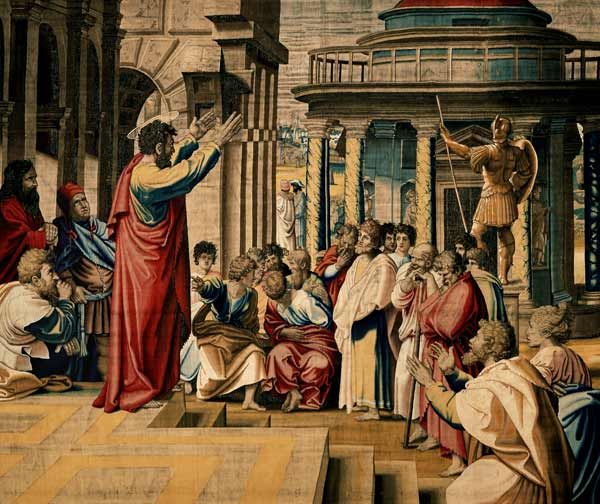
He circumcised his disciples to deceive the Jews (knowing that he fought against circumcision). Then he mocked the statue-worshipping pagans in Athens. Seeing that they worshipped the statue of an unknown God, he told them that he had come to proclaim to them this same unknown God (Acts 17.23). Seeing that their poets said that they were of the race of God, he told them that they were of the race of God.
Hypothesis 2: Paul is deceived by Satan
We know from the Quran that the Devils can make revelations to certain people, but those people must correspond to precise criteria: one must be a liar, a slanderer, or a sinner :
Paul’s life demonstrates that he fits these criteria well, so this hypothesis will not be dismissed, even if the initial hypothesis (Paul forged the revelation story) remains the most plausible.
In conclusion
What Paul proclaimed as “Christianity” was sheer heresy which could not be based on the Jewish or Essene faith, or on the teaching of Rabbi Jesus. But, as Schonfield says, “”The Pauline heresy became the foundation of Christian orthodoxy, and the legitimate church was disowned as heretical” … Paul did something that Rabbi Jesus never did and refused to do. He extended God’s promise of salvation to the Gentiles; he abolished the law of Moses, and he prevented direct access to God by introducing an intermediary.
Lehmann, Johannes. 1972. The Jesus Report p. 128

